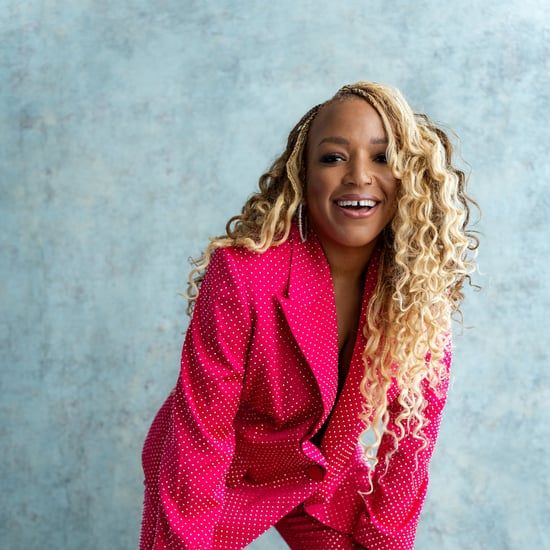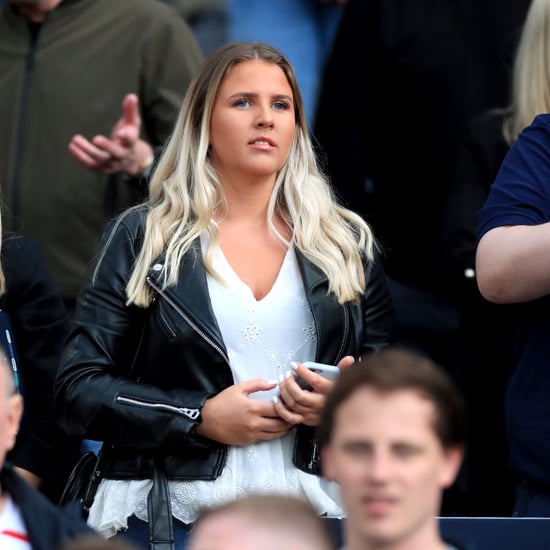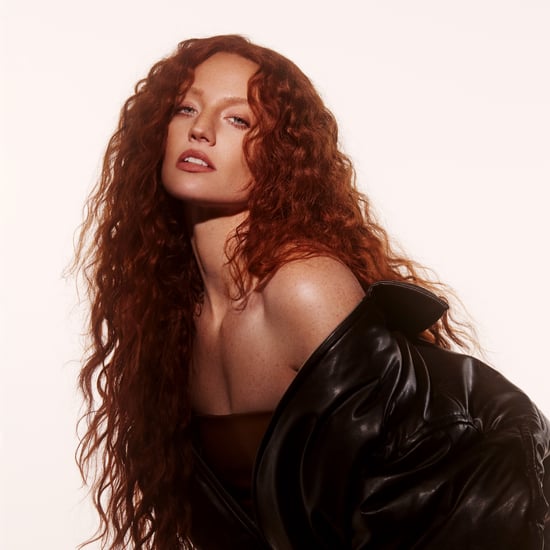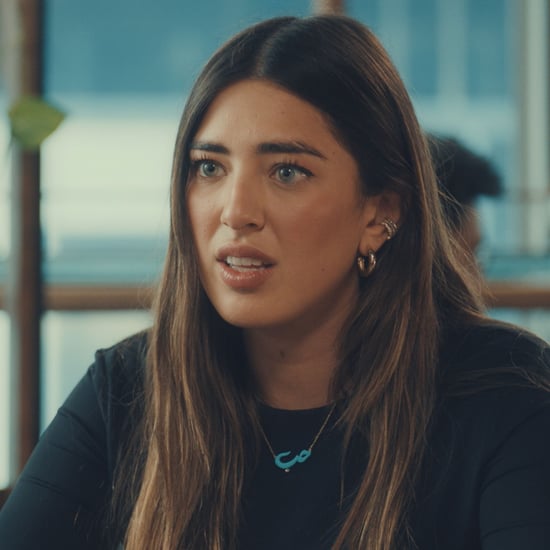Jada Sezer Speaks About Love Island and YouTube Docuseries
Jada Sezer Turned Down Love Island, Then Created a Docuseries About the Impact of Fame on Mental Health
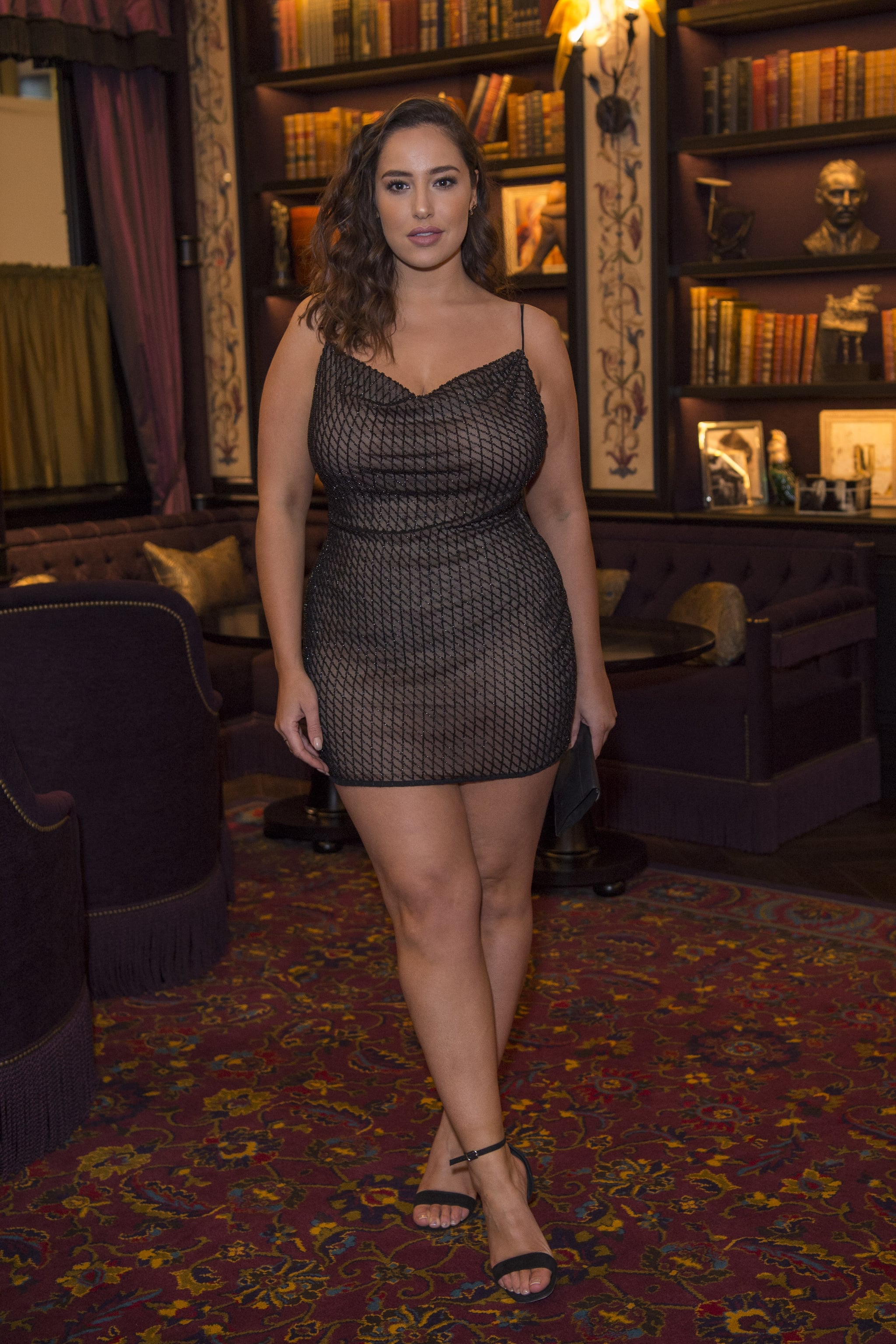
Jada Sezer is a British model and body positivity advocate. She runs marathons — in her underwear, no less — hosts a podcast, and most recently, fronted the Adidas Superstars campaign alongside Pharrell Williams, Maya Jama, Kano, and Jonah Hill.
In January, Jada launched a YouTube docuseries titled Instant Fame, where she interviews past reality television stars, a psychiatrist, and other media personalities to find out what it's really like to be on a hugely popular reality show. But most importantly, she explores how the fame that comes along with it impacts mental health. We sat down with Jada to hear more about Instant Fame, her motivations for creating the documentary, and that one time (ahem, make that three times ) she turned down a spot on Love Island.
She Turned Down a Spot on Love Island Three Times
A couple of years ago, Jada received an Instagram message from ITV's producers asking her to apply for Love Island. She thought it was a joke and ignored the message, but then the same thing happened one year later . . . and then again the following year. When it happened the third time, she decided to audition in the hopes of spreading her body positivity message through a show that has a huge reach, and has been slammed for its lack of diversity in the past.
"[A lack of body diversity on TV has] a hugely detrimental effect — for people to watch a show that isn't representative of the wider audience and nation," Jada told POPSUGAR. "From working in the modelling industry, I understand it takes a long time to push the conversation forward. [ITV] was as keen as I was to see some more diversity on Love Island, it was exciting. So, I kept progressing through the rounds of auditions until they basically said they'd love to have me on."
But the decision to go public was taken out of her hands when it was leaked to the press, and this ultimately lead to her turning down a spot on Love Island. "I hadn't made a decision yet, but the next morning [after her final audition] I woke up with 5,000 — then 10,000 — new Instagram followers and headlines saying 'Jada Sezer, plus-sized model, is going into the villa.' My phone has never rung as much as it did that morning. It was a small taste of what that instant fame could feel like, which made me feel a little bit uncomfortable, to be honest."
She Received Negative Backlash, but It Was Far Outweighed by the Positive
"Of course, with every high comes some negativity," Jada said. "I had a handful of people saying 'Why would you ever go on it?' I mean — I've mentioned this in my documentary, Instant Fame; some people would say, 'Why would you ever put yourself on a show like that when none of them will ever fancy you?' or 'You're not attractive, you're fat and ugly.' The kind of stuff that, to be honest, I get from time to time anyway. People are uncomfortable with seeing somebody that's pioneering a path, and talking about loving themselves, when for so long we have been told to not love ourselves when we look a certain way."
Jada explained that the public being uncomfortable with someone going against the often-accepted weight-loss and gym-rat narrative isn't anything new. "I understand the negativity. We've been told for so long that for somebody to go against that, makes people uncomfortable. But then, I've got hundreds of girls saying, 'I never watched Love Island, but I'm going to tune in because you're on it' or 'Finally, a girl on the show that looks like me.' So there were ups and downs, which again made it a difficult decision to choose not to go on the show."
She Didn't Need Love Island to Spread Her Message, and Blazed Her Own Trail Instead
Jada decided, in the end, that going on Love Island and building a huge audience in a matter of weeks, wasn't worth the risk of putting her hard-earned reputation into the hands of ITV. "You take a big risk [going on a show like Love Island] and although there's a big reward, it could also go very badly, very quickly. You have no control over how you're perceived, portrayed, and produced," Jada said.
I didn't want to reinforce that stereotype because it's already hard enough pioneering a new path and standing up for all of the girls who are like the girl I was when I was younger, who can't see themselves in the media.
"They might portray me however they want, or might break me down somehow in order to see how I build myself back up, and I thought do I want to do that publicly and throw myself under the bus, and lose everything I've built over the past 10 years in a matter of minutes? That was what petrified me. Like, what if they put me into a house filled with guys that actually don't like a woman with a different body type? Then there'd be the storyline of the plus-size model rejected by everyone. I didn't want to reinforce that stereotype because it's already hard enough pioneering a new path and standing up for all of the girls who are like the girl I was when I was younger, who can't see themselves in the media. And there was no way for me to know if they were going to be supportive of that while trying to get more viewers."
Turning Down Love Island Was a Catalyst For Jada Creating Instant Fame
Jada explained that turning down the show wasn't as simple as just saying no. "Usually I know exactly what the next move is for my career and even when I'm throwing myself in the deep end — like when I decided to run a marathon in my underwear — even if it's scary, and I'm vulnerable, I also think 'I've got this.' With Love Island, it was different. One day, I'd be like, 'No, no, no,' then I'd wake up the next day and think, 'But it'd be so cool — I'd be able to reach a huge audience.' But there was something [about Love Island] that I couldn't quite connect with."
It was this indecision that lead Jada to speaking with Laura Crane (a past Love Island contestant) and Caggie Dunlop (who starred in the early seasons of Made in Chelsea), who are no strangers to navigating post-reality-television fame. "They confirmed everything I'd been feeling and thinking, but could actually put it into words," she said. "So that's how Instant Fame came about. A lot of people thought I'd essentially given up Charlie and the Chocolate Factory's golden ticket. Like, who doesn't say yes to that opportunity? But listening to the women really gave me a perspective that I hadn't heard before — and that inspired me to make Instant Fame."
Reality TV Fame Isn't as Glossy as You'd Think
Jada was inspired to create her YouTube documentary, Instant Fame, after her conversations with Caggie and Laura because she felt the flip side — the darker side — of fame is rarely shown. Often, we only see the fabulous Instagram life that reality TV stars want us to see, but Jada believes it's the real-life moments, the ones where you're just living your life quietly and appreciating your privacy — that are admittedly less glamorous — that are what life's really about. "It's probably not a story that many people could get commissioned because it doesn't hit the same nerves," she mused. "But the reaction I've had from Instant Fame is people saying, 'Thank you for your honesty. Thank you for shedding light on this. This is something I've always wanted to hear.'"
Caggie is a great example of this. During her tenure on Made in Chelsea, she was a fairly low-key character, and while that may not have sparked as much controversy (and jaw-dropping storylines) as some of her more high-energy castmates, it was certainly more real. While speaking with Jada, Caggie admitted that she used to ride her bicycle to the London filming locations before hopping into a Rolls Royce for her scene. It's a powerful moment in Instant Fame where Caggie really questions how aspirational the fabricated perfection portrayed in reality shows.
The conversation got Jada thinking about what we're willing to lose in the name of fame. "If you know you can become richer and more popular by becoming a more dramatic version of yourself, how many people are going to say, 'Actually, maybe I'm not willing to go that far,'" she said. "It's so enticing, but it's not really worth the trade." In the documentary, Laura admitted that she decided to lay low in Portugal after leaving Love Island to escape the paparazzi and get used to the huge number of new followers she gained.
Instant Fame May Deter People From Applying For Reality TV Shows
In the past two years, Love Island and ITV have come under fire many times for not supporting their cast properly after leaving the show. Particularly following the deaths of past contestants, Sophie Gradon and Mike Thalassitis, and previous host, Caroline Flack. Jada told me that her goal was for Instant Fame to provide food for thought when showing the darker side of suddenly becoming famous — like many of the Love Island contestants do — and the intense public scrutiny that comes with it.
When I asked Jada whether she hoped Instant Fame would deter people from applying for the reality show in the future, she said it wasn't really about that. "I just want to give people an alternate viewpoint, because I don't think we have that opportunity to hear it often," Jada explained. "I don't think we protect ourselves enough and know what we're getting into when we're walking down the path painted with gold."
The Public Is Hungry For Thoughtful Conversations About Mental Health and Diversity
"It was the same when I started modelling. I wanted to show fashion houses and brands that there is an audience for girls like me that want to wear what everyone else is wearing. One of my favourite sayings is, 'You have to see it to know you can be it.' [Creating the show] was exciting and it happened really organically; I didn't really know what I was doing because it was very explorative and fast. I guess I definitely wanted to answer a lot of questions that I personally had, so I hope when people are presented with these opportunities (to go on a reality TV show) or even won certain opportunities through shortcuts, they will maybe stop and question it a bit more."
After the news came out that Jada might be joining the cast of Love Island's Summer series in 2019, she immediately gained more followers on Instagram. While some may have felt pressure to post a particular type of content, she saw it as an opportunity to spread her body positivity message even further. With messages of support rolling in (she told me her inbox was flooded with messages from women saying, "I've just been waiting for somebody like me to be on a show like that."), it was clear to Jada that there was a thirst for her style of content. And, as for the naysayers, she said she tried to view it as a chance to educate.
"People might have the assumption that because I'm a size 16, I have cellulite, and jiggle when running, that I'm not fit," she told POPSUGAR. "But when people see that I work out three times a week, I go to the gym, I love yoga, I've run a marathon (and a half marathon) . . . I think that was really powerful." Jada said that she's happily embraced her newer audience that maybe wasn't willing to see a curvy girl in that light. "The deeply ingrained stereotype that if you've got fat on your body, it means you're lazy or you don't care about your health, isn't true."
